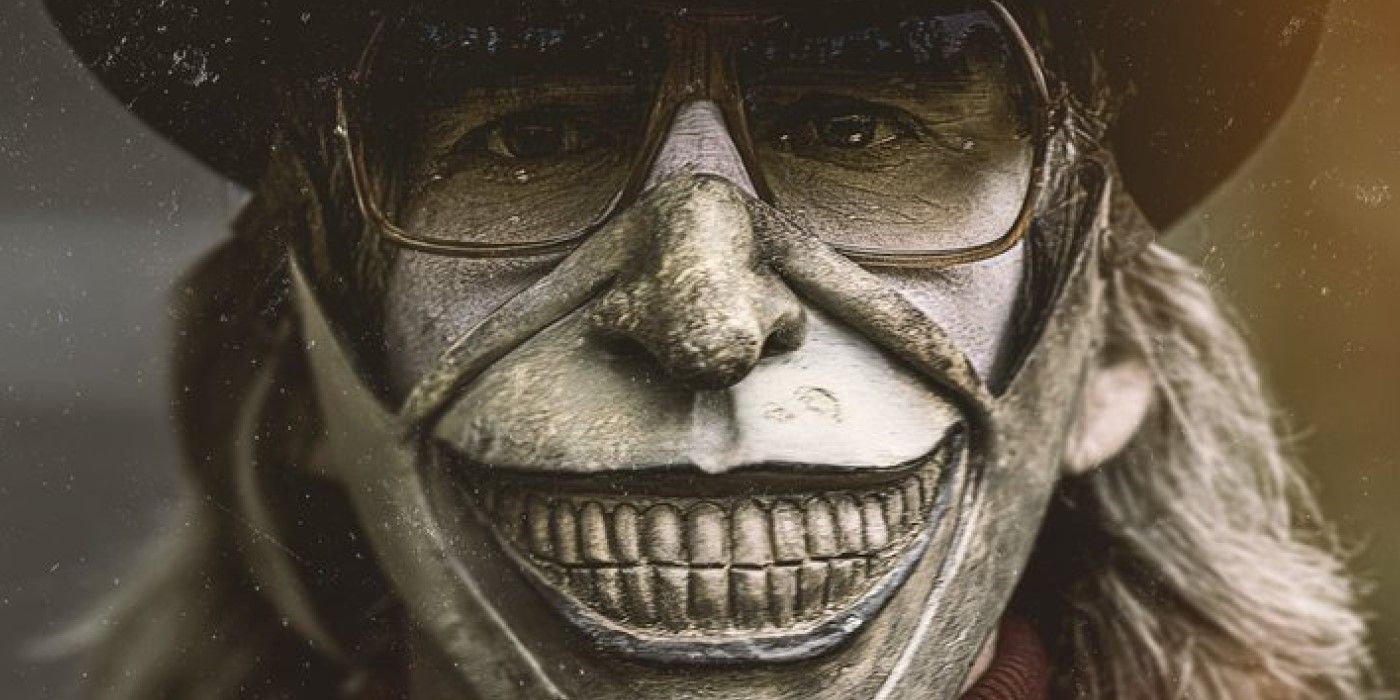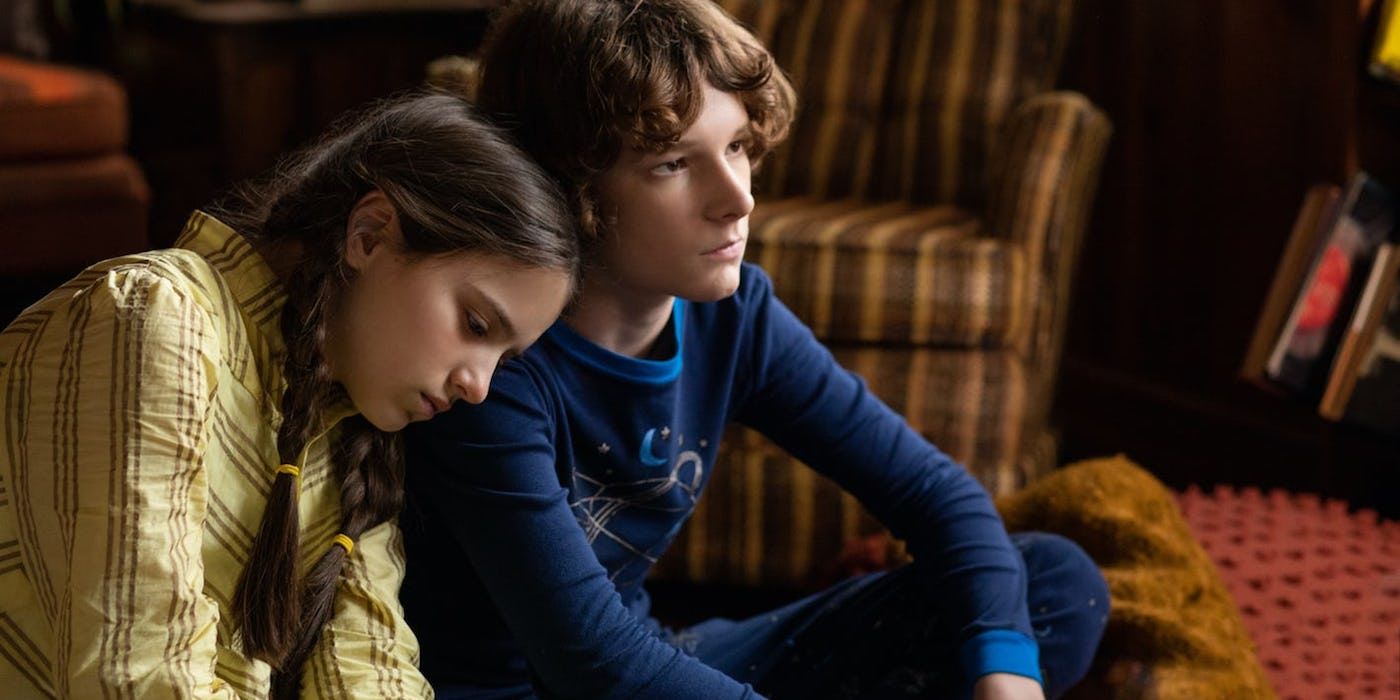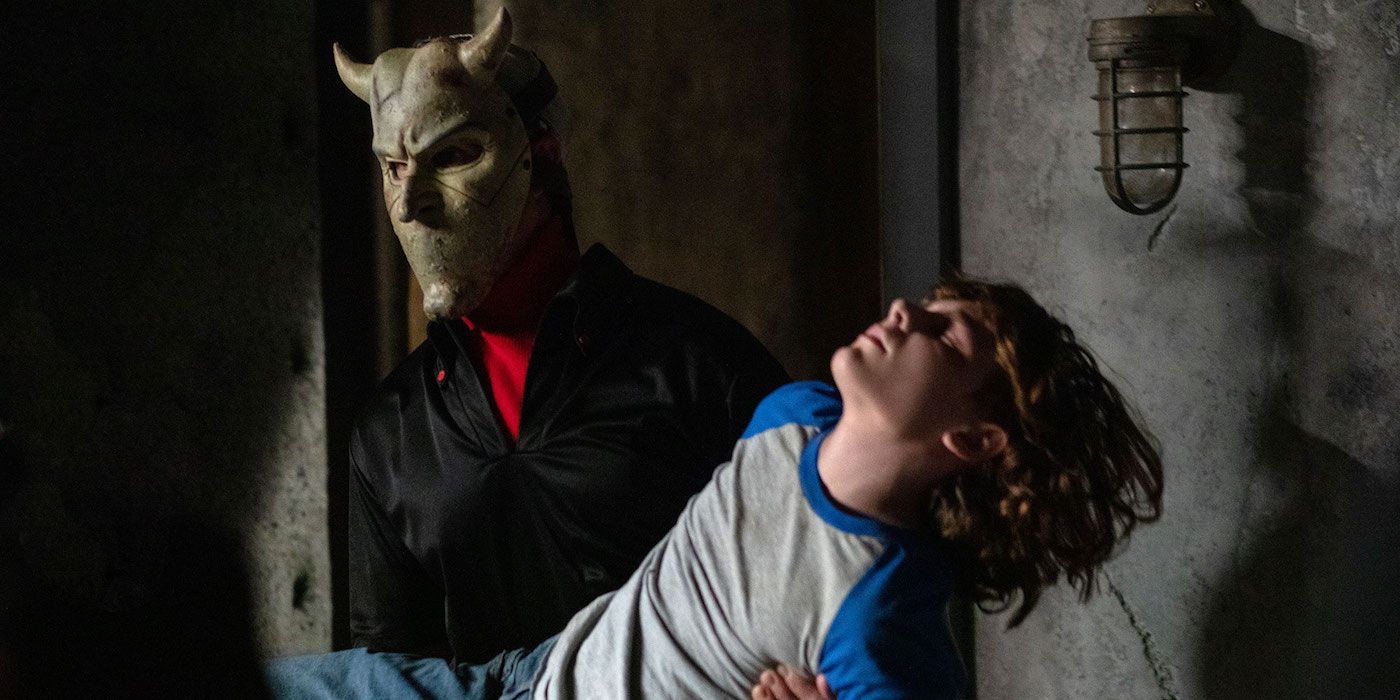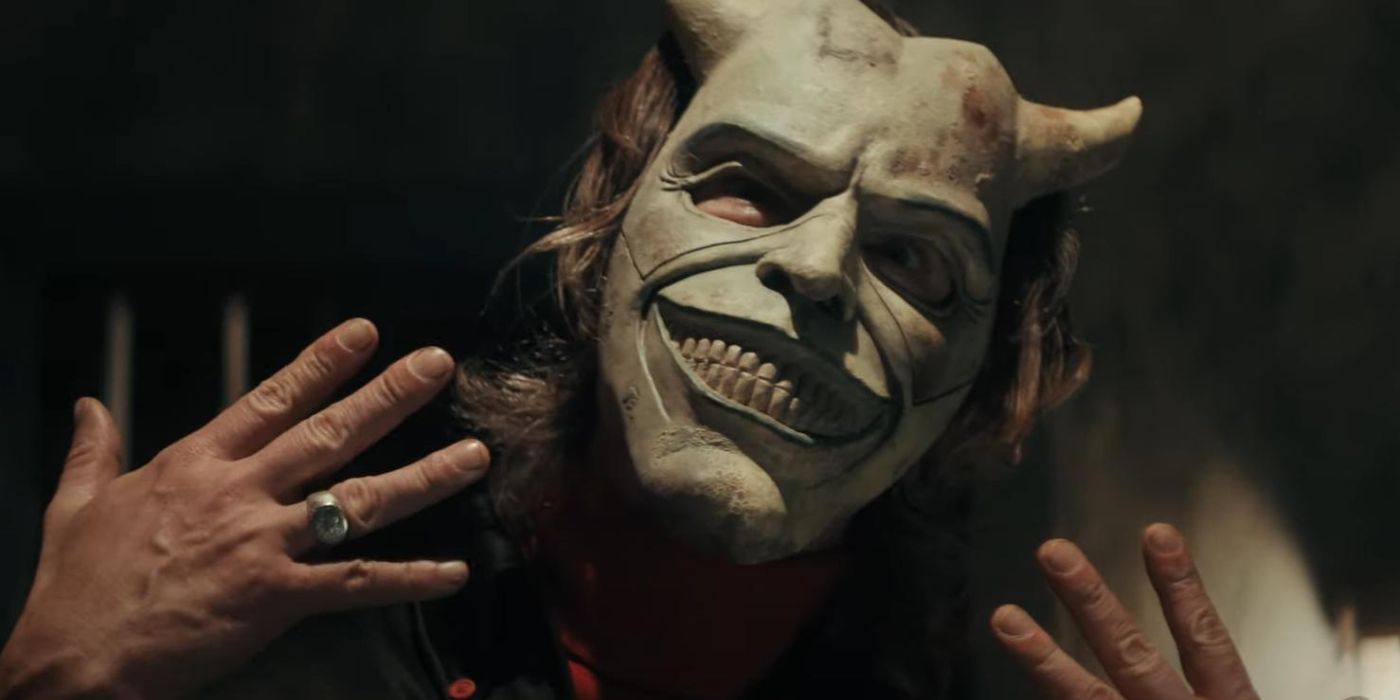One of the year's biggest, most acclaimed horror movies, The Black Phone adapts a short story written by Joe Hill. The movie, helmed by Scott Derrickson, who directs, produces, and co-writes the film with C. Robert Cargill, follows a young boy named Finney who is kidnaped by a notorious serial child killer in his sleepy Colorado town. Known simply as the Grabber, this murderer intends Finney to be his next intended victim. As the authorities and Finney's psychically gifted sister Gwen search for him before it's too late, Finney receives spectral phone calls from the Grabber's previous victims providing advice to help him escape.
In an exclusive interview with CBR, Derrickson shared his own deep personal connection to the film, revealed how he worked with Ethan Hawke to bring his unsettling Grabber to life, and explained what drew him to adapt Hill's serial killer ghost story in the first place.
CBR: Scott, let's start with the big question -- why include The Tingler in the movie?
Scott Derrickson: Because I had the same experience Finney had in that movie. I was younger -- I think I was five or six -- and I was downstairs either early in the morning or late at night. The TV was on, and that came on, and I was watching it; I had never seen a horror film. It was in black-and-white, and when that scene happened for the first time when the blood was red, I just remember being shocked and disturbed by it but also really excited by it and just had an extraordinary experience watching it. I didn't know what the movie was for decades. It wasn't until I was in my 30s or 40s that I figured out it was a movie called The Tingler. I rented it and watched the whole thing, and I hadn't seen it since I was that age, but I'm still amazed by it and think that footage is fantastic.
The opening title sequence really sets the mood and tone for this vision of Colorado that the film takes place in. How was it putting that sequence together?
My now-wife Maggie Levin was the second unit director, so she was helpful working on that in terms of coming up with the concept of it. The idea of progression of the child violence -- the scraped knees, the bloody lip, all of that... She shot a lot of that extra footage as well. I'm a big believer that titles themselves and definitely title sequences are really important to a movie. They really promise the audience that this is what they got coming in some form. Because the opening seems very traditional with an American baseball scene, nothing that happens that we haven't seen in other movies before, I really liked the idea of then jumping to something you could feel takes place in the same time and place, but suddenly it's promising a different approach to childhood than the previous scene of what you're used to seeing from these coming-of-age stories.
While you and co-writer and producer C. Robert Cargill maintain all the broad strokes to the "Black Phone" short story, there's a lot you add to Finney and this world. What did you really want to add to Joe Hill's original story?
We always thought it was a great idea for a movie. I read that short story the month that it was published, and back then, nobody knew Joe Hill was Stephen King's son. I thought the whole book was fantastic, but "The Black Phone" really stood out to me as a fantastic idea for a movie. When I started working with Cargill, pretty quickly after that, while we were making Sinister, I gave him the book and told [him] he had to read this short story. We batted it around for years and just couldn't figure out how to expand it; it's almost like a great second act for a movie.
What happened was, in the two or three years before I stepped off of The Multiverse of Madness, I had been in therapy talking about my early childhood mostly, talking about the violence and early trauma that happened to me as a kid. That was all very fresh in my mind and spirit, and I told Cargill I was very interested in using some of that for a movie, and we talked about making an American 400 Blows, a kind of autobiographical story about growing up in a working-class neighborhood where there's a lot of domestic violence. That wasn't a good enough idea for a movie, but the eureka moment was what if we took all these memories that I have, these kids that I knew, this neighborhood that I grew up in, and combined it with The Black Phone? That was how we did this movie, and it kind of came together very easily. We wrote the script in six weeks.
I would argue the most graphic violence in the film doesn't really involve the Grabber but are things like Gwen's standoff with her father and the vodka or a bully taking a rock to the head. What was it about approaching the violence outside of Finney's prison?
That's all stuff that I grew up with and was kind of the norm in that city where I lived at that time, and it didn't just happen to me but to a lot of kids. I think the idea is that the movie is really about childhood trauma. Childhood is traumatic for everybody, but when you grow up around violence, it's a different kind of trauma. I liked the idea of the story having a meaning and impact in the context of their normal lives. It's not just something that they survive but that they're already survivors. It's not by accident that the Grabber's weapon of choice is the same weapon of choice as Gwen and Finney's father, this brown leather belt.
I like the idea that they're able to survive and hopefully transcend both experiences and that what Finney and Gwen go through in the movie is something that's going to empower them to really rise above what they have to live with in their neighborhood and home. That's why it's so significant to me that, when the father returns at the end, there's not any easy reconciliation there, but you just know that this violence that has occurred in this household as a regular thing is not going to continue in the same fashion -- it can't, Finney would never let that happen. Of course, when Finney walks down the hallway in that last scene, he gives the ever-so-slightest smirk when he passes the bullies. You can just tell that the stuff that was happening before is not so hard for him now. He knows what to do about it. I like that. That's the coming-of-age aspect of it.
Like a baptism by fire from a serial killer.
Yeah, and to add to that, what I think Joe Hill's story had that is what I think is unique in respect to all of this is an empathetic point of view from Finney and the dead kids, one dead kid in the short story. It's a very scary and suspenseful movie that is told from a point of view of love and is inspiring, and that's not something you get very often. That really starts with Joe's short story, what I felt from the short story, and one of the main things that I tried to preserve in the film.
I read somewhere that Ethan Hawke was hesitant on taking any villainous roles. How did you talk him into taking on this role as a jacked, masked child killer?
I didn't ask for him to be jacked -- he showed up that way! He shaped up that way, and I was like, "Dude, you're in really good shape!" and he said, "Yeah, I don't know if there's any place where you need me to have my shirt off, but if you do, I can." I was like, "As a matter of fact, when we see you with the belt in the kitchen, you should have your shirt off." It was great, and I think he got that way for The Northman, which he had just shot.
I told Ethan I had this script, and I told him, "I don't think you're going to want to do it. The character is a pedophile serial killer, and he wears a mask the whole time." That's when he laughed and told me, "I don't really play villains." That never occurred to me, but it was true. I sent him the script, and in the morning, he left me a voicemail in the voice of the Grabber saying one of the lines from the script. That was his way of letting me know he was going to do it.
Where did you come up with the idea for the masks? It's almost like kabuki theater for Ethan, in a way.
That was partly in the script. What we had in the script was a devil smile and devil frown mask, the comedy/tragedy mask and as an antique leather mask. When I started pre-production, I started thinking, "I've got Ethan Hawke -- I'd like to see a little of his face." It started with that, and I came up with the idea of three masks, each divided in half so that he, as a character, would choose which piece of each mask he would wear as a form of intimidation. He would use aspects of the mask to strike fear in his victims -- in this case, Finney. It was really just a question of what specifically does it look like.
I went to, I believe, six different companies, including Tom Savini's company, to see what these guys have and get some concept art of what it would look like. Some of it came back very elaborate, with really polished three-dimensional images. Tom Savini sent us pencil sketches on a single piece of paper, and I was like, "Oh my god, that's it!" It really is what the masks looked like, and it just shows what a genius Tom is. After that, it was a really difficult process working with [special effects supervisor] Jason Baker trying to get the texture and aging right with the paints and where the paint has worn off. I probably spent more time working on that mask than prepping anything.
With this movie and the direction you took it hewing so close to the bone for you personally, how is it getting it off your chest and releasing it and taking it to physical home video?
It's definitely the most personal movie I've ever made. Doctor Strange was personal. Sinister was very personal, but this is really, really personal. It was a different kind of experience working on this. I was really trying to create that time and place from memory, and I wasn't trying to create it by fetishizing the '70s. I was trying to put on film what that part of North Denver in 1978 felt like, and I think we really captured that. That's really satisfying because you can feel when a movie has done that, when a movie takes you someplace that's real and [you're] transported somewhere that really feels like a time and place. It's not an easy thing to do, and when that happens, it's a really wonderful thing as an audience member.
For me, to be able to take what has a lot of hard work in therapy, a lot of bad memories and shifting through a lot of muck, and transpose that into something that is not only a horror film but something that is inspiring and uplifting, that's extremely gratifying to me. It really was one of those creative processes that an artist dreams of, to be able to do something that personal and to be supported the way I was by [producer] Jason Blum and Universal. They didn't make me change anything in the script or film. They were just 100% supportive. Then to have it connect with an audience, that doesn't happen a lot. For me, that is probably the most satisfying thing to happen in my career.
Produced, directed, and co-written by Scott Derrickson, The Black Phone was released on Blu-ray Aug. 16 and is available on digital HD, and is currently available to stream on Peacock.




